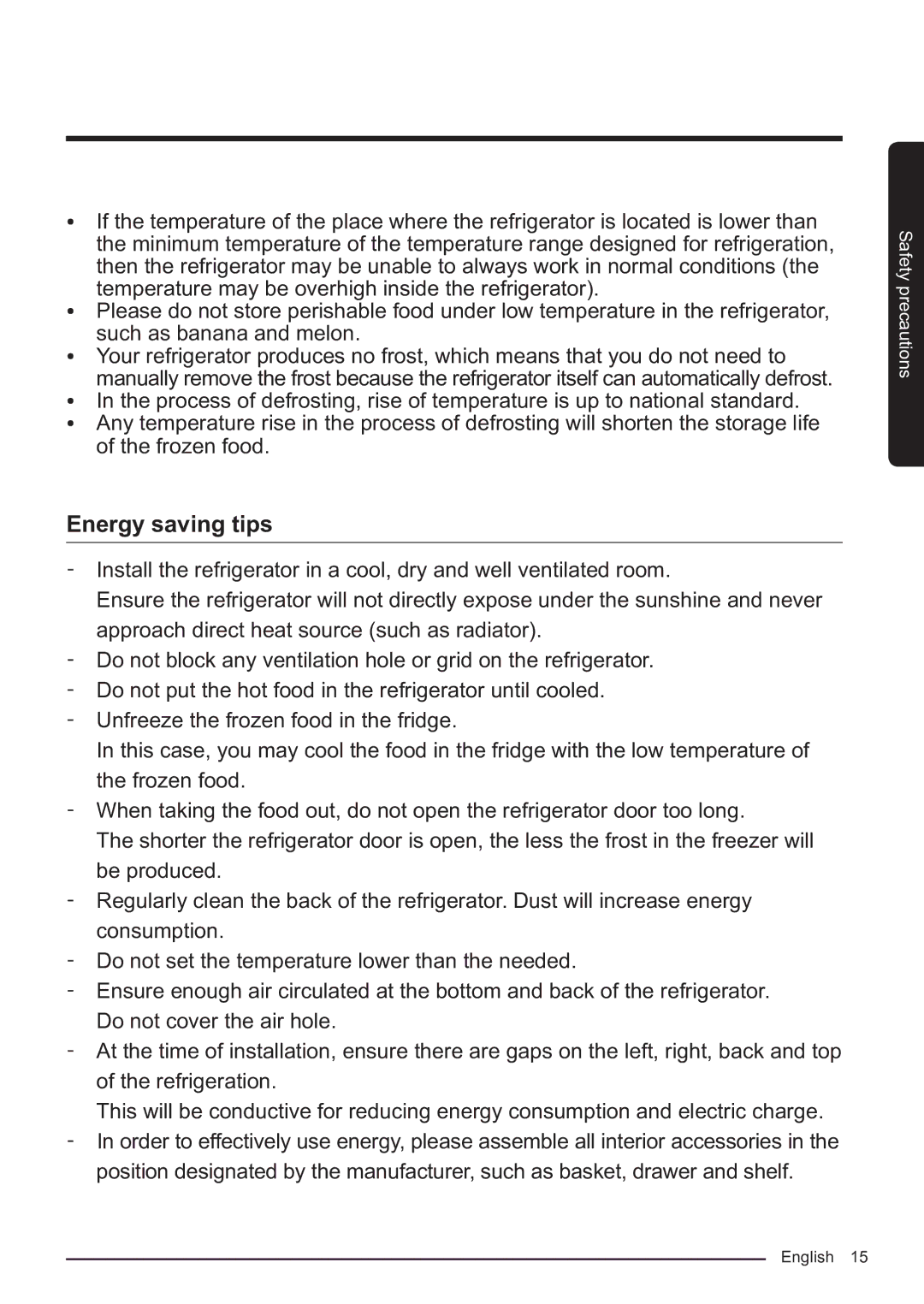
•If the temperature of the place where the refrigerator is located is lower than the minimum temperature of the temperature range designed for refrigeration, then the refrigerator may be unable to always work in normal conditions (the temperature may be overhigh inside the refrigerator).
•Please do not store perishable food under low temperature in the refrigerator, such as banana and melon.
•Your refrigerator produces no frost, which means that you do not need to manually remove the frost because the refrigerator itself can automatically defrost.
•In the process of defrosting, rise of temperature is up to national standard.
•Any temperature rise in the process of defrosting will shorten the storage life of the frozen food.
Energy saving tips
-Install the refrigerator in a cool, dry and well ventilated room.
Ensure the refrigerator will not directly expose under the sunshine and never approach direct heat source (such as radiator).
-Do not block any ventilation hole or grid on the refrigerator.
-Do not put the hot food in the refrigerator until cooled.
-Unfreeze the frozen food in the fridge.
In this case, you may cool the food in the fridge with the low temperature of the frozen food.
-When taking the food out, do not open the refrigerator door too long.
The shorter the refrigerator door is open, the less the frost in the freezer will be produced.
-Regularly clean the back of the refrigerator. Dust will increase energy consumption.
-Do not set the temperature lower than the needed.
-Ensure enough air circulated at the bottom and back of the refrigerator. Do not cover the air hole.
-At the time of installation, ensure there are gaps on the left, right, back and top of the refrigeration.
This will be conductive for reducing energy consumption and electric charge.
-In order to effectively use energy, please assemble all interior accessories in the position designated by the manufacturer, such as basket, drawer and shelf.
Safety precautions
English 15
